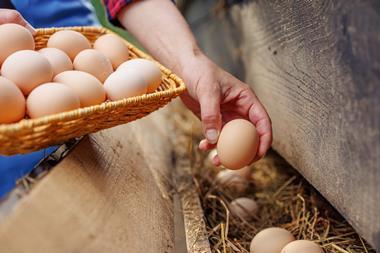A ‘what if’ analysis commissioned by the Agriculture & Horticulture Development Board (AHDB) has shown Brexit will have considerable impact on the UK’s milling industry under a range of trade scenarios.
The report – Brexit scenarios: Impacts on the UK’s milling and malting sectors – assesses the effect of three post-Brexit trade scenarios on supply and demand for milling wheat, malting barley, flour and malt. The scenarios examined were:
- A Free Trade Agreement (FTA), with the EU agreeing zero tariffs
- A unilateral approach, where imports are tariff-free but exports are subject to tariffs
- Mutual application of World Trade Organization (WTO) tariffs in the case of a so-called ‘hard Brexit’.
The UK flour trade is likely to experience significant disruption post-Brexit even if an FTA is negotiated, found AHDB.
The report stated this was partly due to the reliance of UK mills on global imports of high-quality milling wheat, which might disqualify UK flour from preferential access to the EU market. This would impact mills on the British mainland if they lost free access to this market via the cross-border trade, with the biggest potential impact loss of trade with the Republic of Ireland, which currently receives two-thirds of its flour from mainland British mills.
The National Association of British and Irish Flour Millers (Nabim) said it did not disagree with the conclusions of the AHDB report, and that it was working to try and reduce the impact of a range of potential Brexit outcomes.
“It is about contingency planning; it is about identifying a risk and then working to mitigate that risk,” said Nabim director general Alex Waugh.
In March, Nabim and the Food & Drink Federation (FDF) produced a report warning how rules of origin could mean many UK products would not qualify for preferential tariffs. In the case of goods containing even a small proportion of flour from outside the UK, these would no longer be considered ‘of UK origin’ and would therefore be subject to significant duties.
The FDF and Nabim have since been developing legal wording that could be dropped into a treaty to mitigate concerns over rules of origin.
The AHDB report found the outlook for the malting sector was more positive, as almost all UK malt is currently exported to non-EU countries. It added that Brexit could give UK growers the chance to displace malting barley imports.
“There could be some tough decisions to be made by UK millers and maltsters in the near future depending on how Brexit pans out,” said Dr Martin Grantley-Smith, strategy director for cereals & oilseeds at AHDB.
“This is a timely report providing some early warning of how the challenges may play out, so that businesses can revisit some of their options for post-March 2019. Up to now, our trading arrangements with the EU have been of critical importance and this report clearly shows, whatever the outcome of Brexit, business-as-usual is not going to be an option.”
To download the report visit www.ahdb.org.uk/brexit
































No comments yet